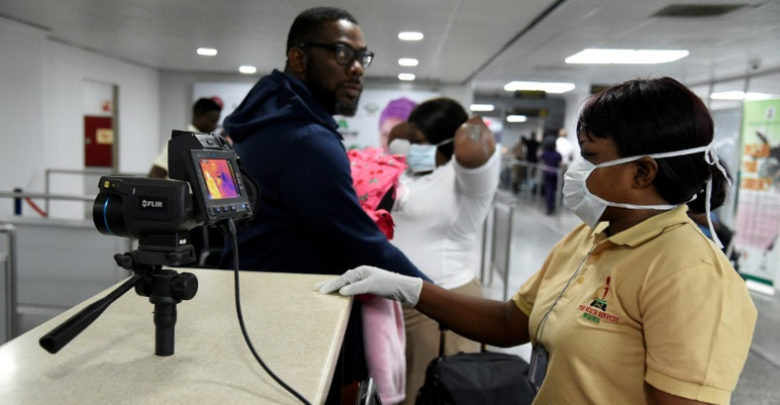
- Nigeria, Africa's most populous country with some 190 million people, is viewed as one of the world's most vulnerable to the spread of the virus given its fragile health system and high population density.
Nigeria’s economic hub Lagos confirmed a case of new coronavirus on Friday, stirring memories of the fears sparked six years ago when West Africa’s Ebola epidemic hit the chaotic megacity of 20 million.
The health minister said the first confirmed case of the virus in sub-Saharan Africa was an Italian citizen who had returned from Milan earlier this week.
“The patient is clinically stable, with no serious symptoms,” Ehanire said, adding that the patient was being treated at a hospital for infectious diseases in Lagos.
The low number of cases so far across Africa, which has close economic ties with China, the epicentre of the deadly outbreak, has puzzled health specialists.
Prior to the case in Nigeria, there had been just two cases on the continent — in Egypt and Algeria.
Vulnerable country
Nigeria, Africa’s most populous country with some 190 million people, is viewed as one of the world’s most vulnerable to the spread of the virus given its fragile health system and high population density.
In 2014, the first case of Ebola confirmed in the city from the outbreak that swept West Africa set off alarm bells across the globe and unleashed a wave of panic among residents.
In the end Lagos escaped relatively lightly and only seven people died from a total of 19 infected, a number dwarfed by the overall toll of 11,000 deaths across the region from 2013 to 2016.
The World Health Organization (WHO) hailed the containment of Ebola in Lagos as a major success given the potential for a rapid spread in the city’s closely packed and poorly sanitised neighbourhoods.
The Lagos state health authorities reacted quickly, medical experts from international organisations in the country deployed from the capital Abuja and the disease was confined to the upscale neighbourhoods in the city.
This time around officials insist that the country has made its preparations for a potential coronavirus outbreak.
“I can tell you that in Nigeria we have a costed plans as part of preparedness for this epidemic,” deputy health minister Olorumibe Mamora said earlier this month.
Mamora said quarantine centres had been established in Lagos and Abuja and were being set up in the southern oil hub of Port Harcourt and the biggest northern city of Kano.
“We would do everything we need to do if the situation arises in respect of the safety of our citizens,” the official said.
Nigeria’s Centre for Disease Control says that three laboratories in the country have the capacity to diagnose the virus and that health officials have been meeting daily to share intelligence.
‘Lessons from Ebola’
The director general of the West African Health Organisation Stanley Okolo has insisted the region had “learnt from the lessons of Ebola”.
He said members of the Economic Community of West African States (ECOWAS) bloc agreed recently to come up with a “regional cost plan” and estimated that up to $50 million was required.
“The devastation of an epidemic affects everybody,” he said.
Situated in a tropical regional not far from the equator, Nigeria has had to face the threat of multiple contagious diseases.
An outbreak of Lassa fever, which is spread mainly through rat faeces and urine, has killed over 100 people across the country since the start of the year.
Experts say the oil-rich economic powerhouse is better prepared to deal with any disease epidemics than some of its poorer neighbours in the region.
But the government is criticised for not spending enough on health and crumbling infrastructure, corruption and the departure of doctors to better paying jobs abroad have eaten away at the sector.



